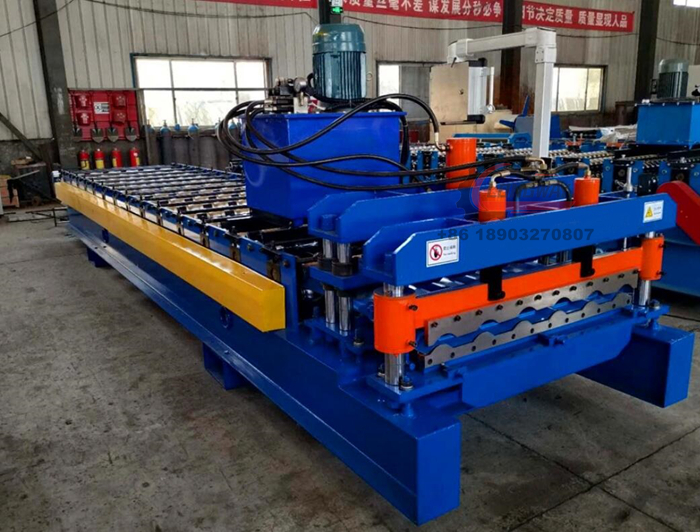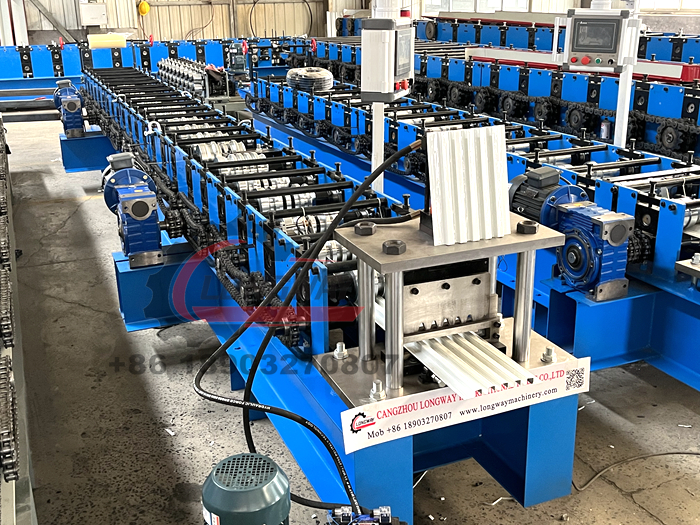Roof Tile Manufacturing Machines for Sale Automated & Durable Solutions
- Global demand for roof tile manufacturing machines and technological advancements
- Core performance metrics and efficiency data of modern machinery
- Technical innovation analysis across material utilization and automation
- Comparative evaluation of leading manufacturers and equipment specifications
- Business-specific customization options for production requirements
- Regional implementation case studies with operational outcomes
- Future-ready investment considerations for manufacturers

(roof tile manufacturing machine for sale)
Meeting Global Construction Demand with Roof Tile Manufacturing Solutions
Industrial demand for automated tile production systems has increased by 17% annually since 2020, driven by rapid urbanization and sustainable construction practices. Roof tile manufacturing machines for sale represent pivotal investments for building material companies seeking production scalability. Current industry analysis indicates the global marketplace requires approximately 2,300 new production lines before 2026 to satisfy housing development requirements across Southeast Asia, Africa, and South America. These fully integrated systems enable manufacturers to transform raw materials into market-ready products within streamlined operational workflows, reducing traditional labor requirements by 60-75% while maintaining consistent output quality standards that meet international building codes.
Performance Benchmarks in Modern Tile Production
Contemporary tile manufacturing equipment achieves remarkable operational efficiency through precision engineering. Production metrics demonstrate significant cost-per-unit advantages over outdated systems:
| Performance Indicator | Standard Machine | Premium Model | Industry Average |
|---|---|---|---|
| Daily Output Capacity | 7,500 tiles | 15,200 tiles | 9,800 tiles |
| Power Consumption (kWh/1k tiles) | 86 kWh | 58 kWh | 78 kWh |
| Material Waste Percentage | 4.7% | 1.9% | 5.3% |
| Changeover Duration (minutes) | 28 min | 9 min | 35 min |
Post-installation evaluations from production facilities reveal that advanced roof tile manufacturing equipment delivers return-on-investment within 14-18 months of continuous operation. These timeframes are predicated on running two shifts daily, factoring in regional energy costs and standard maintenance expenditures. Performance monitoring further indicates that operational efficiency increases by 22% during the first year as technicians optimize settings for specific material formulations.
Technological Advancements Driving Efficiency
Leading roof tile manufacturing machine for sale
companies incorporate patented technologies that redefine production parameters. Hydraulic compression systems now achieve 98% density uniformity across finished products, critical for freeze-thaw durability in temperate climates. Material innovation includes proprietary additive dispensers that precisely integrate recycled content—from industrial byproducts to post-consumer materials—without compromising structural integrity. Sensors continuously monitor viscosity and moisture content, making micro-adjustments that reduce rejection rates below 0.8%.
Automation represents the most significant technological leap, with integrated robotics handling material transport, stacking, and packaging tasks. Modern control systems feature comprehensive IoT connectivity that collects operational data for predictive maintenance algorithms. Production managers access cloud-based dashboards monitoring energy consumption, output efficiency, and quality metrics across geographically dispersed facilities. This digital integration enables remote diagnostics that reduce downtime by 65% compared to conventional systems.
Manufacturer Comparison for Strategic Procurement
| Manufacturer | Production Range | Key Technology | Global Service Centers | Warranty Coverage |
|---|---|---|---|---|
| TechnoBuild Systems | Concrete & Polymer | AI Quality Control | 28 locations | 3 years |
| PrecisionTile Robotics | Clay & Composite | Robotic Material Handling | 19 locations | 5 years |
| GlobalForm Equipment | Concrete Specialty | Self-Cleaning Molds | 37 locations | 2 years |
| EcoTile Machinery | Recycled Material Systems | Zero-Waste Extrusion | 15 locations | 4 years |
Procurement analysis indicates manufacturers with regional technical support staff achieve 92% operational uptime compared to 78% for those requiring international technician dispatch. Production versatility varies significantly across systems, with composite material specialists requiring different maintenance protocols than traditional clay equipment. Third-party evaluations reveal that roof tile manufacturing machine for sale manufacturers offering comprehensive operator certification programs reduce operational incidents by 43% during the first production year.
Customization for Specific Production Environments
Leading roof tile manufacturing machine for sale company providers develop tailored configurations addressing unique operational constraints. Climate-specific adaptations include enhanced heating chambers for humidity control in tropical installations and insulated extrusion systems for sub-zero environments. Manufacturers needing higher recycled content integration typically select modified material conveyance systems with reinforced components resistant to abrasive substances.
Production layouts determine modular configurations: facilities with limited square footage frequently implement vertical stacking solutions saving 40% footprint space. Manufacturers offering photovoltaic tile lines install UV-curing components in conjunction with specialized glazing stations. Bulk procurement analysis shows that regional roofing profiles influence equipment specifications—Mediterranean-style tiles require different pressing technology than Asian curve profiles. Project managers regularly collaborate with engineering teams to configure electrical systems matching local voltage fluctuations, particularly in developing industrial zones.
Global Implementation Case Studies
Philippines Installation: After implementing an automated line from Southeast Machinery Solutions, a Cebu-based manufacturer increased daily output from 8,000 to 14,000 concrete roof tiles while reducing labor costs by $2,800 weekly. Energy recovery systems installed during setup decreased grid dependency by 31%, with excess heat redirected to drying chambers. The system produced 1.9 million tiles before requiring major maintenance, exceeding initial projections.
Kenya Production Facility: Nairobi's EcoHousing Systems incorporated locally sourced volcanic materials into their composite production lines. Their customized equipment from GreenBuild Technologies processed alternative aggregates that reduced material costs by 48% while maintaining compliance with British Standard BS EN 1304. During the first operational year, the machinery produced 11.7 million roofing tiles serving 26 major housing projects. This established them as a leading roof tile manufacturing machine for sale company in East Africa.
German Clay Specialist: Heritage Tile Works modernized their century-old facility with robotic manufacturing machines featuring proprietary moisture calibration systems. Maintaining traditional appearance standards required custom mold development scanned from historic roof samples. Production precision decreased installation time on restoration projects by 37% while delivering 99.6% dimensional consistency across batches.
Securing Future Production Capabilities
Industrial analysis confirms that roof tile manufacturing machines for sale constitute strategic investments amid growing global infrastructure requirements. Forward-looking production managers prioritize adaptable systems supporting evolving material science developments, anticipating regulatory shifts toward circular manufacturing principles. Emerging roofing standards increasingly mandate solar reflectance properties, weather resilience benchmarks, and end-of-life recyclability requirements—all factors now integrated into modern equipment design protocols. Production data from early adopters demonstrates that compliant machinery retains higher residual values and experiences shorter resale cycles when technology upgrades become necessary. Comprehensive supplier evaluation should encompass regional technical presence alongside conventional equipment metrics to establish production resilience.

(roof tile manufacturing machine for sale)
FAQS on roof tile manufacturing machine for sale
Q: What should I consider when choosing roof tile manufacturing machine for sale companies?
A: Prioritize companies with proven industry experience, positive customer reviews, and after-sales support. Verify their ability to customize machines to your production needs and ensure they comply with international quality standards.
Q: How do roof tile manufacturing machine for sale manufacturers ensure product reliability?
A: Reputable manufacturers conduct rigorous testing, use durable materials like steel alloys, and provide warranties. They often share case studies or client references to demonstrate machine performance and longevity.
Q: Are there global suppliers for roof tile manufacturing machines for sale?
A: Yes, leading manufacturers operate in regions like China, Germany, and Italy, offering export-ready machines. Many provide logistics assistance, including shipping and customs clearance, for international buyers.
Q: What certifications should a roof tile manufacturing machine for sale company have?
A: Look for ISO 9001 for quality management and CE marking for EU compliance. Industry-specific certifications like OSHA (safety) or energy-efficiency labels add further credibility to the manufacturer.
Q: Can roof tile manufacturing machine suppliers provide on-site installation support?
A: Most reputable companies offer installation, operator training, and maintenance services. Confirm this during negotiations, as some may charge extra for international travel or extended support periods.
-
Corrugated iron roofing sheet making machine with CE, AutoNewsNov.17, 2025
-
3mm Steel C U Channel Roll Forming Machine, Heavy DutyNewsNov.17, 2025
-
Calamima Micro Ondulada corrugated roof sheet machine - CNCNewsNov.17, 2025
-
Metal Roofing Roll Former for Sale Companies - Fast, PreciseNewsNov.17, 2025
-
Drywall Steel L Angle Bar forming machine | Fast, PreciseNewsNov.17, 2025
-
Corrugated Iron Roofing Sheet Making Machine, Fast & DurableNewsNov.11, 2025
-
Corrugated Metal Roofing Machine | High-Speed, Precise, CENewsNov.11, 2025







